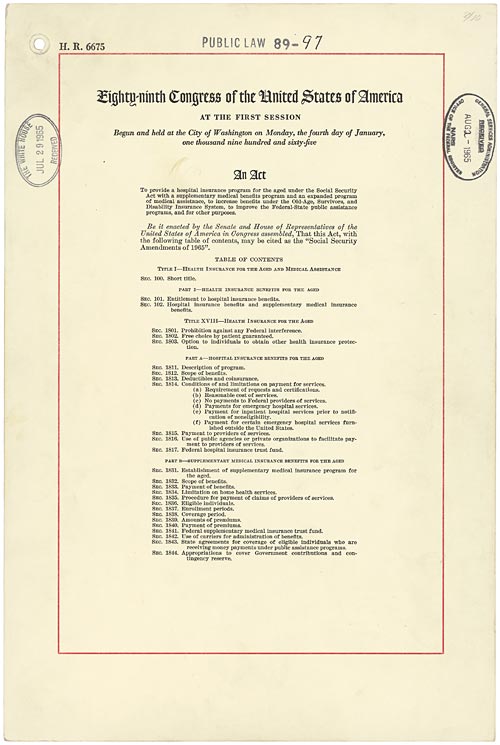The use of the 'Dr' prefix by physiotherapists has been a topic of debate for quite some time. This controversy has sparked intense discussions within the medical community, with some arguing that physiotherapists have the right to use the title, while others claim it is misleading and can cause confusion among patients.
At the heart of the issue is the question of what constitutes a doctor. Traditionally, the title of 'Dr' has been reserved for medical practitioners who have completed a doctoral degree in medicine. However, with the evolution of healthcare and the increasing specialization of various fields, the lines have become blurred. Physiotherapists, who have undergone extensive training and education in their field, argue that they should be able to use the 'Dr' prefix as a mark of respect and recognition of their expertise.
The Centre has recently weighed in on the issue, making a decision that has sent shockwaves through the physiotherapy community. The key points of the Centre's decision include:
- Banning the use of the 'Dr' prefix by physiotherapists
- Requiring physiotherapists to use their designated titles, such as 'Physiotherapist' or 'PT'
- Implementing measures to ensure compliance with the new regulations
This decision has been met with resistance from some physiotherapists, who feel that it undermines their professional status and may lead to confusion among patients. On the other hand, some argue that the ban is necessary to maintain clarity and consistency in the use of medical titles.
The implications of the Centre's decision are far-reaching and will likely have a significant impact on the physiotherapy profession. As the debate continues to unfold, it is essential to consider the perspectives of all stakeholders involved, including physiotherapists, patients, and the broader medical community. By examining the issues at hand and engaging in open and informed discussion, we can work towards a resolution that respects the rights and interests of all parties involved.

Background of the Controversy
The controversy surrounding the use of the 'Dr' prefix by physiotherapists has been a long-standing issue in the medical community. The Indian Medical Association (IMA) has been at the forefront of the protest against physiotherapists using the 'Dr' prefix. This protest is not just about a title, but it has deeper implications for patient care and professional boundaries.
One of the primary reasons behind the IMA's protest is the potential for patient confusion. When physiotherapists use the 'Dr' prefix, it can lead patients to believe that they are medical doctors, which is not the case. This confusion can have serious consequences, as patients may seek medical advice from physiotherapists who are not qualified to provide it. The IMA argues that this can compromise patient care and safety.
The reasons behind the protest can be summarized as follows:
- Patient confusion: The use of the 'Dr' prefix by physiotherapists can lead to patients seeking medical advice from unqualified professionals.
- Professional boundary issues: The 'Dr' prefix is a title that is typically associated with medical doctors, and its use by physiotherapists can blur the lines between the two professions.
- Lack of standardization: There is a lack of standardization in the use of the 'Dr' prefix among physiotherapists, which can lead to further confusion and inconsistencies.
The IMA's protest is also driven by concerns about professional boundary issues. The use of the 'Dr' prefix by physiotherapists can create confusion about the scope of practice and the qualifications of physiotherapists. This can lead to encroachment on the territory of medical doctors and other healthcare professionals.
The issue of patient confusion and professional boundary issues is complex and multifaceted. The IMA's protest is an attempt to clarify the roles and responsibilities of different healthcare professionals and to ensure that patients receive the best possible care. By understanding the reasons behind the protest, it is possible to appreciate the nuances of the issue and the need for a resolution that prioritizes patient care and safety.

Centre's Decision and Rationale
The Centre's decision to ban physiotherapists from using the 'Dr' prefix has been a topic of discussion in the medical community. This decision was made to establish a clear distinction between medical doctors and other healthcare professionals. The primary goal is to maintain professional boundaries and avoid any confusion that may arise among patients.
The rationale behind this decision is multifaceted. One key reason is to prevent patients from being misled about the qualifications and expertise of their healthcare providers. When physiotherapists use the 'Dr' prefix, it may create an impression that they have a medical degree, which is not the case. This can lead to misunderstandings and potentially compromise patient care.
Some of the key points supporting this decision include:
- Maintaining professional boundaries: The Centre's decision helps to establish a clear line between medical doctors and other healthcare professionals, ensuring that each group is recognized for their unique qualifications and expertise.
- Avoiding patient confusion: By prohibiting the use of the 'Dr' prefix, the Centre aims to prevent patients from being confused about the qualifications and capabilities of their healthcare providers.
- Clarity in healthcare: This decision promotes transparency and clarity in the healthcare system, enabling patients to make informed decisions about their care and treatment.
The Centre's decision is also intended to promote a more nuanced understanding of the different roles within the healthcare system. By recognizing the distinct contributions of physiotherapists and other healthcare professionals, the Centre aims to foster a more collaborative and effective healthcare environment. Ultimately, this decision is designed to prioritize patient well-being and ensure that patients receive the best possible care from qualified and recognized healthcare professionals.

Implications for Physiotherapists
The implications of the ban on physiotherapists are far-reaching and multifaceted. One of the primary concerns is the impact on physiotherapists' professional identity and reputation. Physiotherapists have traditionally used the 'Dr' prefix as a mark of respect and to signify their expertise in the field. The ban on using this prefix may lead to confusion among patients and the general public, potentially undermining the credibility of physiotherapists.
The ban may also have significant consequences for physiotherapists who continue to use the 'Dr' prefix despite the ban. These consequences may include:
- Disciplinary action from regulatory bodies
- Loss of professional accreditation
- Damage to their reputation and professional standing
- Potential legal action for misrepresentation
Physiotherapists who continue to use the 'Dr' prefix may be seen as non-compliant with regulatory requirements, which could lead to a loss of trust among patients and the wider healthcare community.
The potential consequences for physiotherapists who defy the ban are not limited to individual practitioners. The profession as a whole may suffer from a loss of credibility and public trust. This could have long-term implications for the profession, including reduced demand for physiotherapy services and decreased opportunities for physiotherapists to work in interdisciplinary healthcare teams.
In light of these implications, it is essential for physiotherapists to understand the reasons behind the ban and to comply with the new regulations. This may involve updating their professional profiles, business cards, and marketing materials to reflect the change. By doing so, physiotherapists can maintain their professional integrity and reputation, while also upholding the standards of their profession.

Way Forward and Future Developments
As we move forward, it is essential to consider the potential for further developments in the controversy. This may include legal challenges or appeals, which could significantly impact the outcome of the situation. These challenges may arise from various parties, including individuals, organizations, or even government entities. It is crucial to stay informed about any new developments and to be prepared for any potential outcomes.
The legal challenges or appeals may focus on several key areas, including:
- Interpretation of existing laws and regulations
- Allegations of misconduct or negligence
- Disputes over jurisdiction or authority
These challenges may lead to a re-examination of the facts, and potentially, a re-evaluation of the decisions made.
In light of these potential developments, it is vital to maintain professional boundaries and respect for different healthcare professions. This includes recognizing the unique roles and expertise of each profession, as well as the importance of collaboration and communication. By doing so, we can ensure that patients receive the best possible care, and that the integrity of the healthcare system is upheld.
Maintaining professional boundaries is crucial, as it helps to prevent conflicts of interest, ensures accountability, and promotes a culture of respect and trust. This can be achieved by:
- Establishing clear guidelines and protocols
- Providing ongoing education and training
- Encouraging open communication and feedback
By prioritizing professional boundaries and respect, we can foster a positive and supportive environment, where healthcare professionals can work together effectively to deliver high-quality patient care.

Frequently Asked Questions (FAQ)
Why did the Indian Medical Association protest against physiotherapists using the 'Dr' prefix?
The Indian Medical Association's protest against physiotherapists using the 'Dr' prefix was a significant event that highlighted the importance of maintaining professional boundaries in the medical field. The association's primary concern was to prevent patient confusion and ensure that patients receive accurate and reliable medical care from qualified professionals.
One of the main reasons behind the protest was the potential for patients to be misled into believing that physiotherapists are medical doctors. This could lead to patients seeking medical advice and treatment from individuals who are not fully qualified to provide it. The Indian Medical Association argued that the use of the 'Dr' prefix by physiotherapists could blur the lines between different healthcare professions and compromise patient safety.
The key issues that led to the protest can be summarized as follows:
- Lack of clarity regarding the qualifications and expertise of physiotherapists
- Potential for patients to be confused about the role and capabilities of physiotherapists
- Need to maintain professional boundaries and prevent encroachment into the domain of medical practice
- Importance of ensuring that patients receive medical care from fully qualified and licensed professionals
The Indian Medical Association's protest was ultimately aimed at protecting the interests of patients and upholding the integrity of the medical profession. By maintaining clear professional boundaries and distinguishing between different healthcare roles, the association sought to prevent confusion and ensure that patients receive the best possible care from qualified and licensed medical professionals. The protest highlighted the need for ongoing efforts to clarify the roles and responsibilities of different healthcare professionals and to maintain the trust and confidence of patients in the medical system.
What are the consequences for physiotherapists who continue to use the 'Dr' prefix despite the ban?
The use of the 'Dr' prefix by physiotherapists has been a topic of debate in recent years. Despite the ban, some physiotherapists continue to use the prefix, which can lead to serious consequences.
Physiotherapists who continue to use the 'Dr' prefix may face professional consequences, including damage to their reputation and loss of trust from patients. This can have a negative impact on their practice and career.
Some of the professional consequences that physiotherapists may face include:
- Disciplinary action from regulatory bodies
- Loss of membership from professional associations
- Negative reviews and feedback from patients
- Difficulty finding employment or advancing in their career
In addition to professional consequences, physiotherapists who continue to use the 'Dr' prefix may also face legal consequences. This can include fines, penalties, and even loss of licensure.
The legal consequences can vary depending on the jurisdiction, but some common consequences include:
- Financial penalties and fines
- Loss of licensure or registration
- Civil lawsuits from patients who feel misled
- Criminal charges for misrepresentation
It is essential for physiotherapists to understand the consequences of using the 'Dr' prefix despite the ban. They should be aware of the professional and legal consequences and take steps to comply with the regulations.
Regulatory bodies and professional associations play a crucial role in enforcing the ban and taking action against physiotherapists who continue to use the 'Dr' prefix. Physiotherapists should be aware of the regulations and guidelines in their jurisdiction and take steps to ensure they are in compliance.
Ultimately, the consequences of using the 'Dr' prefix despite the ban can be severe and long-lasting. Physiotherapists should prioritize compliance and transparency to maintain the trust and respect of their patients and the public.
How will the ban on using the 'Dr' prefix affect physiotherapists' professional identity and reputation?
The use of the 'Dr' prefix by physiotherapists has been a topic of discussion in recent years, with some countries imposing a ban on its use. This ban may have significant implications for physiotherapists, particularly in terms of their professional identity and reputation. Physiotherapists who have been using the 'Dr' prefix may feel that it is an integral part of their professional identity, and the ban may lead to a sense of loss or diminishment of their status.
The ban on using the 'Dr' prefix may also impact physiotherapists' reputation, particularly among patients and other healthcare professionals. Some patients may view physiotherapists who use the 'Dr' prefix as more qualified or competent than those who do not. However, it is essential to prioritize patient safety and maintain professional boundaries. The use of the 'Dr' prefix by physiotherapists may lead to confusion among patients, who may assume that they are medical doctors. This confusion can have serious consequences, particularly in emergency situations where patients may require immediate medical attention.
To maintain professional boundaries and prioritize patient safety, physiotherapists must be aware of the following key considerations:
- Clearly communicate their role and qualifications to patients and other healthcare professionals
- Avoid using titles or prefixes that may be misleading or confusing
- Emphasize their expertise and competence as physiotherapists, rather than relying on a title or prefix
- Stay up-to-date with the latest regulations and guidelines regarding the use of titles and prefixes in their profession
By prioritizing patient safety and maintaining professional boundaries, physiotherapists can ensure that their professional identity and reputation are not compromised by the ban on using the 'Dr' prefix.
Ultimately, the ban on using the 'Dr' prefix is an opportunity for physiotherapists to reflect on their professional identity and reputation, and to emphasize their unique expertise and qualifications. By doing so, they can maintain the trust and confidence of their patients, and continue to provide high-quality care and services. The key is to focus on what matters most - providing excellent patient care and upholding the highest standards of professionalism.






